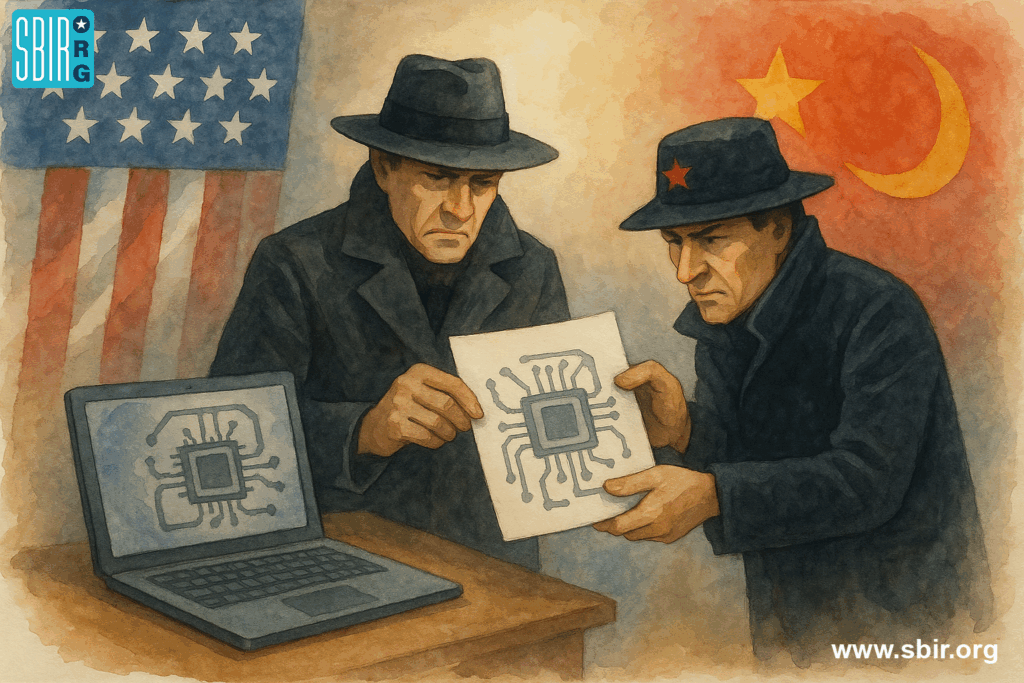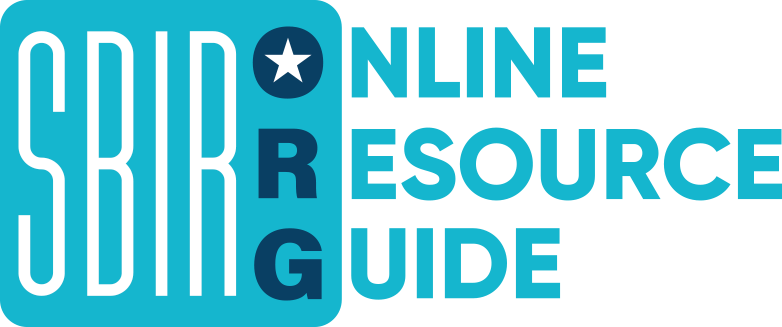SBIR Program Protections: What Small Businesses Need to Know About New Security Legislation

Breaking news for small business innovators: Representatives Derek Tran (D-CA-45) and Don Bacon (R-NE-02) have introduced groundbreaking legislation to protect America’s $4.3 billion SBIR program from foreign exploitation through 2030. The Small Business Innovation Research (SBIR) Foreign Interference Safeguard Act addresses a critical vulnerability that costs the U.S. economy up to $600 billion annually in intellectual property theft.
If you’re a small business owner seeking SBIR funding or currently participating in the SBIR program, this legislation directly impacts your future. Here’s everything you need to know about these vital protections and what they mean for American innovation.
Understanding the SBIR Program: America’s Engine for Small Business Innovation
The SBIR program represents the federal government’s most significant commitment to small business research and development. Distributing $4.3 billion annually across more than 6,500 awards to approximately 3,700 companies, SBIR funding has become the lifeblood of American innovation.
Small businesses receiving SBIR funding create an impressive 65,578 jobs annually and drive breakthrough innovations. Success stories from the SBIR program include companies like Illumina (now generating $3.3 billion in annual revenue) and 23andMe, demonstrating the transformative power of this federal investment.
Why SBIR Funding Matters for Small Businesses
- Micro-businesses with fewer than 10 employees apply for patents at 25 times the rate of larger companies
- SBIR program participants contribute disproportionately to American technological advancement
- Small businesses generate 43.5% of America’s GDP and employ 45.9% of private sector workers
- IP-intensive industries supported by SBIR funding pay workers an $18,483 annual wage premium
The Threat: How Foreign Adversaries Target SBIR Program Recipients
The success of the SBIR program has attracted systematic targeting by foreign adversaries, particularly China. Federal investigations reveal alarming statistics:
- At least six major SBIR recipients with clear links to China received nearly $180 million in defense contracts despite existing security measures
- The FBI maintains over 1,000 active investigations involving Chinese entities attempting to steal American intellectual property
- A new counterintelligence case opens every 12 hours related to IP theft
- Intellectual property theft costs the U.S. economy between $225 billion and $600 billion annually
Real-World Impact on SBIR Program Participants
The case of American Superconductor Corporation illustrates the existential threat facing SBIR program participants. After Chinese wind turbine manufacturer Sinovel stole AMSC’s control software:
- The company lost $800 million in value
- 600 employees were laid off—over 60% of its workforce
- Years of SBIR funding and innovation were compromised
For small businesses, a single IP breach costs an average of $8.64 million—often proving fatal for companies with limited resources who depend on SBIR program support.
Current Vulnerabilities in SBIR Program Security
A 2024 Government Accountability Office investigation revealed troubling inconsistencies in how agencies screen SBIR funding applicants for foreign ties:
| Agency | Applications Flagged | Applications Rejected | Rejection Rate |
|---|---|---|---|
| National Institutes of Health | All problematic | All problematic | 100% |
| Department of Defense | 522 | 152 | 29% |
| NASA | 125 | 1 | 0.8% |
Three agencies—DHS, EPA, and NASA—lack documented processes for requesting counterintelligence analysis, leaving critical gaps in SBIR program security screening.
The Solution: SBIR Foreign Interference Safeguard Act
The new legislation extends the SBIR and STTR Due Diligence Program through 2030, ensuring continued protection for SBIR funding recipients. Key provisions include:
Extended Authority for Security Screening
Without reauthorization, agencies would lose their authority to screen SBIR program applicants for foreign ties, leaving America’s largest early-stage R&D funding source vulnerable to exploitation. The five-year extension provides crucial time to:
- Strengthen security protocols across all agencies administering SBIR funding
- Collect comprehensive data on foreign interference patterns
- Develop consistent screening procedures for SBIR program applicants
- Close existing gaps in counterintelligence analysis
Bipartisan Support from Key Committee Leaders
The legislation benefits from sponsors with complementary expertise:
Representative Derek Tran:
- Ranking Member of the House Small Business Committee
- Small business owner who understands entrepreneurial challenges
- Eight years of Army Reserve service providing security insights
- Represents California’s 45th district with over 71,000 small businesses
Representative Don Bacon:
- Retired Air Force Brigadier General with 29 years of service
- Expertise in electronic warfare and intelligence
- Ranked 8th most bipartisan House member in 2023
- Represents Nebraska’s 2nd district with 179,509 small businesses
What This Means for SBIR Program Applicants and Recipients
For small businesses seeking or currently receiving SBIR funding, this legislation provides several critical benefits:
1. Continued Access to SBIR Funding
The legislation ensures the SBIR program can continue operating with necessary security measures, preventing potential shutdown or restriction of funding opportunities.
2. Level Playing Field
Enhanced screening helps ensure SBIR funding goes to legitimate American small businesses rather than front companies for foreign adversaries.
3. Protection of Your Innovations
Stronger security measures help protect SBIR program participants from becoming targets of economic espionage.
4. Clear Guidelines and Consistency
The five-year extension allows agencies to develop clearer, more consistent procedures for SBIR funding applications.
Technologies at Risk: What SBIR Program Innovations Need Protection
The SBIR program funds research in precisely the technologies that China’s “Made in China 2025” industrial policy targets:
- Artificial intelligence and machine learning
- Biotechnology and life sciences
- Advanced manufacturing techniques
- Aerospace and defense technologies
- New materials and nanotechnology
- Semiconductors and quantum computing
Small businesses working in these fields through SBIR funding face sophisticated cyber attacks and traditional espionage methods, making protective legislation essential.
Regional Impact: How SBIR Program Protection Affects Innovation Hubs
The legislation’s impact on SBIR funding varies by region based on local innovation ecosystems:
California (Rep. Tran’s District)
- Orange County’s $300 billion economy heavily depends on SBIR program participants
- Aerospace, biotechnology, and technology sectors benefit from enhanced protections
- 64% of small businesses employ fewer than five people, making them vulnerable without SBIR funding security
Nebraska (Rep. Bacon’s District)
- Agriculture accounts for 34% of state business sales
- Agricultural technology innovations through SBIR program require protection
- Omaha’s growing tech sector benefits from secure SBIR funding opportunities
Other Major Innovation Centers
- Massachusetts: $41.7 million in SBIR program support generated $5.1 billion in follow-on investment
- Silicon Valley, Texas aerospace corridor, and North Carolina’s Research Triangle all depend on secure SBIR funding
Looking Ahead: The Future of SBIR Program Security
The SBIR Foreign Interference Safeguard Act represents one piece of broader legislative efforts to reform small business innovation programs:
Complementary Legislation
- Senator Ernst’s INNOVATE Act implements stricter “foreign risk” definitions for SBIR program applicants
- Proposals to make SBIR funding permanent, eliminating reauthorization uncertainty
- Enhanced coordination with allied nations on research security
Industry Support
Major organizations backing stronger SBIR program protections include:
- Information Technology and Innovation Foundation
- U.S. Chamber of Commerce (representing IP-intensive industries supporting 62.5 million jobs)
- National small business associations
Action Steps for SBIR Program Participants
If you’re involved with or considering SBIR funding, here’s what you should do:
- Support the Legislation: Contact your representatives to express support for the SBIR Foreign Interference Safeguard Act
- Enhance Your Security: Implement robust cybersecurity measures to protect your SBIR program innovations
- Document Compliance: Maintain clear records demonstrating legitimate business operations and ownership
- Stay Informed: Monitor updates on SBIR funding security requirements and best practices
- Report Suspicious Activity: Alert authorities if you encounter potential foreign interference in the SBIR program
Conclusion: Securing America’s Innovation Future Through SBIR Program Protection
The SBIR Foreign Interference Safeguard Act provides essential protection for America’s $4.3 billion investment in small business innovation. By extending security measures through 2030, this bipartisan legislation ensures SBIR funding continues supporting legitimate American entrepreneurs while preventing foreign exploitation.
For the thousands of small businesses depending on the SBIR program, this legislation offers both protection and promise—safeguarding past innovations while securing future opportunities. As global competition intensifies and adversaries become more sophisticated, protecting SBIR funding from foreign interference isn’t just good policy—it’s essential to maintaining American technological leadership and economic competitiveness.
The stakes couldn’t be higher. With proper safeguards, the SBIR program will continue transforming innovative ideas into job-creating businesses, breakthrough technologies, and economic growth. Without them, decades of American innovation and billions in taxpayer investment remain vulnerable to those who would steal rather than create.
